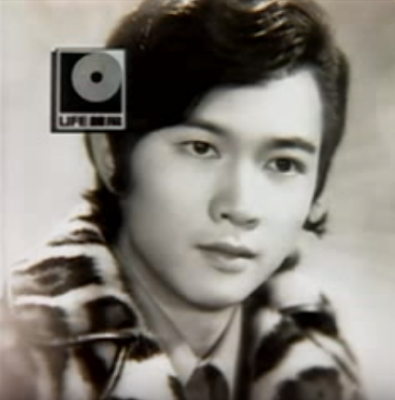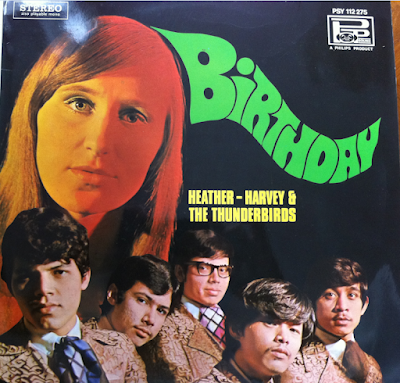UP TO 12,000 VIEWS, 25 COMMENTS, CHATS
I am not too familiar with the golden years of 70's pop Chinese music in Singapore, so when he told me about a singer he was knowledgeable about I decided to buy one of this singer's vinyl (image below) and listen to the songs recorded. I must say I am impressed and thank Kin Kow for the information provided.
Lee Yee (李逸) Jin Biao, was a household name in the early 1970's. His feminine good looks attracted a lot of attention when he was performing during his hey-day in the region.
In the 60's and 70's the public was looking to Hong Kong and Taiwan for Chinese songs because audiences here felt that Singapore singers were not up to par, so when Lee, who came from Malaysia, appeared on the scene he became a phenomenon.
He had charisma and a powerfully beautiful voice so Lee who had a contract with Life Records, a well-established vinyl company, became one of the most popular Chinese singers during that period. He became well known to the youth and aunties who loved him.
He drew crowds and even toured with super diva Teresa Teng as a team when they performed in Malaysian towns. The tours were successful and news spread that he could compete with the best from Hong Kong and Taiwan. They even compared him to Liu Wen Zheng.
For Whom Do I Sing This Love Song (唱首情歌给谁听?) was the number that made him famous and his rise to fame was meteoric after the sale of this particular single. The Malaysian-born Chinese made it such a hit that the pop music Chinese community all over the world associated him with this song.
For whom am I singing this love song?
Where can I find a soul mate?
There is so much passion deep inside me
I cannot finish singing or talk about it.
Everything went well as his fan base grew. It was quite a feat those days for an unknown Malaysian singer to hit the headlines and make it big. The competition was keen indeed.
During the early 70's, although there were other talented Chinese singers both in Singapore and Malaysia, his songs stood out because he was able to interpret them in his own special way. So even if the song had been covered by other singers, his own version would always stand out.
He sang with a wail in his voice like a tormented, passionate lover. He would usually sing out a verse from the song lyrics during the introduction. If Tomorrow Comes was an example. Lee was known for his sad and sorrowful songs that aroused the listener's sympathy. Girls were known to have cried listening to him sing.
李逸 - 好姑娘 (Lee Yee - Hao Gu Niang)
Even English speakers like me know the melody.
In Memory of Lee Yee:
Video produced by Life Records Chinese.
But as the saying goes, when one least expects it, tragedy strikes. And it did. One morning the local newspapers announced that Lee Yee was killed in an accident. It happened on 27 July 1980. Born in Penang in 1952, he was only 28 when he died. It was such a shock to many fans.
There was disbelief and many cried openly when they found out it was true. Here was a rising young star with a stable and bright future. It was an untimely death as fate had its own plan. Worse, Lee Yee left behind his wife - also a Life Record artiste - and a daughter.
Despite the years, many fans still remember him today because his emotional rendition of Chinese sentimental popular songs was indeed unique.
Comment anyone?
Letters about Lee Yee:
Images: Google.
Information from Mr Chan Kin Kow and articles by: irisesinthesun YouTube.
















